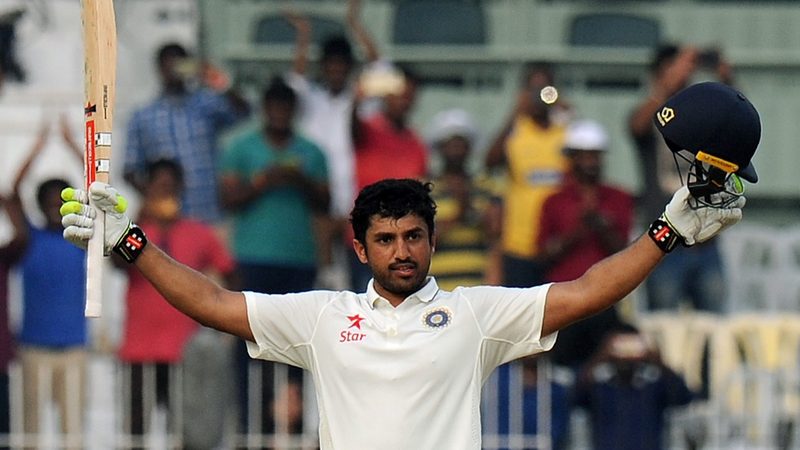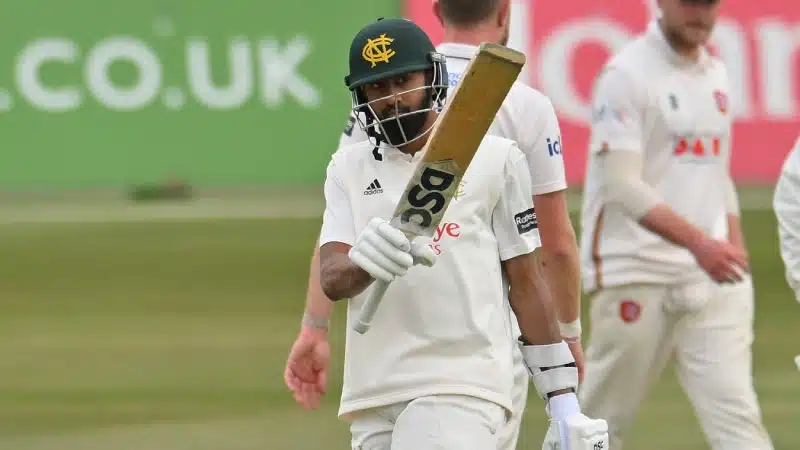
The Indian cricket team will take on England in a much-awaited four-match Test series starting February 5 on Friday in Chennai.
India’s rivalry with its former colonial rulers is their oldest in world cricket dating back to 1932. The two nations have already played 122 Tests against each other, producing several extraordinary batting performances in those matches.
As Virat Kohli’s Team India prepares to lock horns with Joe Root's England in a mouth-watering Test series, here's a look at the top five individual knocks in the history of the two cricketing giants:
Ian Bell's 235 at The Oval, London, 2011
Electing to bat first in the fourth Test against India at The Oval in 2011, Andrew Strauss-led England rode on Ian Bell’s scintillating 235 runs to post a mammoth 591/6 (declared) in their first innings. Bell had smashed 23 fours and two sixes as he registered his highest score in Test cricket. The hosts then bundled out India’s famed batting line-up for 300 and asked them to follow-on. MS Dhoni’s Team India produced an even dismal performance in their second innings as they were bowled out for 283. India lost the match by an innings and eight runs and also succumbed to a humiliating 4-0 whitewash in the four-match Test series.

Geoffrey Boycott's 246 not out at Headingley, Leeds, 1967
During India's tour of England in 1967, former England opener Geoffrey Boycott recorded his highest Test score of 246 not out to help the hosts declare their first innings for 550/4. In reply, Mansur Ali Khan Pataudi-led India were bundled out for just 164 in their first innings and were asked to follow-on. However, skipper Pataudi led from the front as he scored 148 runs in the second innings to help the visitors post 510 in their second innings, thus setting a 125-run target that England chased down with six wickets in hand. Under the captaincy of Brian Close, the hosts whitewashed India 3-0.
Alastair Cook's 294 at Edgbaston, Birmingham, 2011
After winning the toss and elected to field first in the third Test at Edgbaston in 2011, Alaistair Cook-led England bowled out India for a paltry 224 in their first innings. In reply, England skipper Cook produced a masterclass as he smashed a 294-run knock to help the hosts post a gigantic first innings score of 710/7 (declared). England then bundled out the visitors for 244 in their second innings, thus registering a massive win by an innings and 242 runs. Team India was thrashed 4-0 by the hosts in the Test series.

Karun Nair's 303 not out at MA Chidambaram Stadium, Chennai, 2016
India’s Karun Nair smashed an unbeaten 303 runs against England in the fifth and final Test at the MA Chidambaram Stadium in Chennai in 2016. The 29-year-old had hit 32 fours and four sixes in his incredible innings. The Jodhpur-born cricketer also became only the second Indian batsman to score a triple hundred after Virender Sehwag. Nair’s innings helped the hosts post their highest total in Test cricket -- 759/7 wickets (declared) in reply to England's 477. India then bundled out England for 207, thus winning the match by 75 runs and clinching the five-match Test series 4-0. Interestingly, Nair only represented India in three more Test matches after that, with his last appearance coming in 2017 against Australia.
Graham Gooch's 333 at Lord's, London, 1990
During India's tour of England in 1990, former England captain Graham Gooch registered his career-best Test score of 333 against India in the first Test at Lord’s. Gooch's 485-ball knock helped the hosts post a mammoth total of 653/4 (declared). In reply, India rode on centuries from Ravi Shastri (100) and captain Mohammad Azharuddin (121) to post 454 in their first innings. Gooch smashed another ton (123) in the second innings to help England declare at 272/4, setting the visitors a target of 472. However, Azhar’s Team India failed to replicate their first innings performance and were bundled out for 224, losing the Test by 247 runs. Gooch accumulated a record 456 runs in that Lord's Test, 333 in the first innings, and 123 in the second.
Feature image courtesy: AFP / Arun Sankar




















